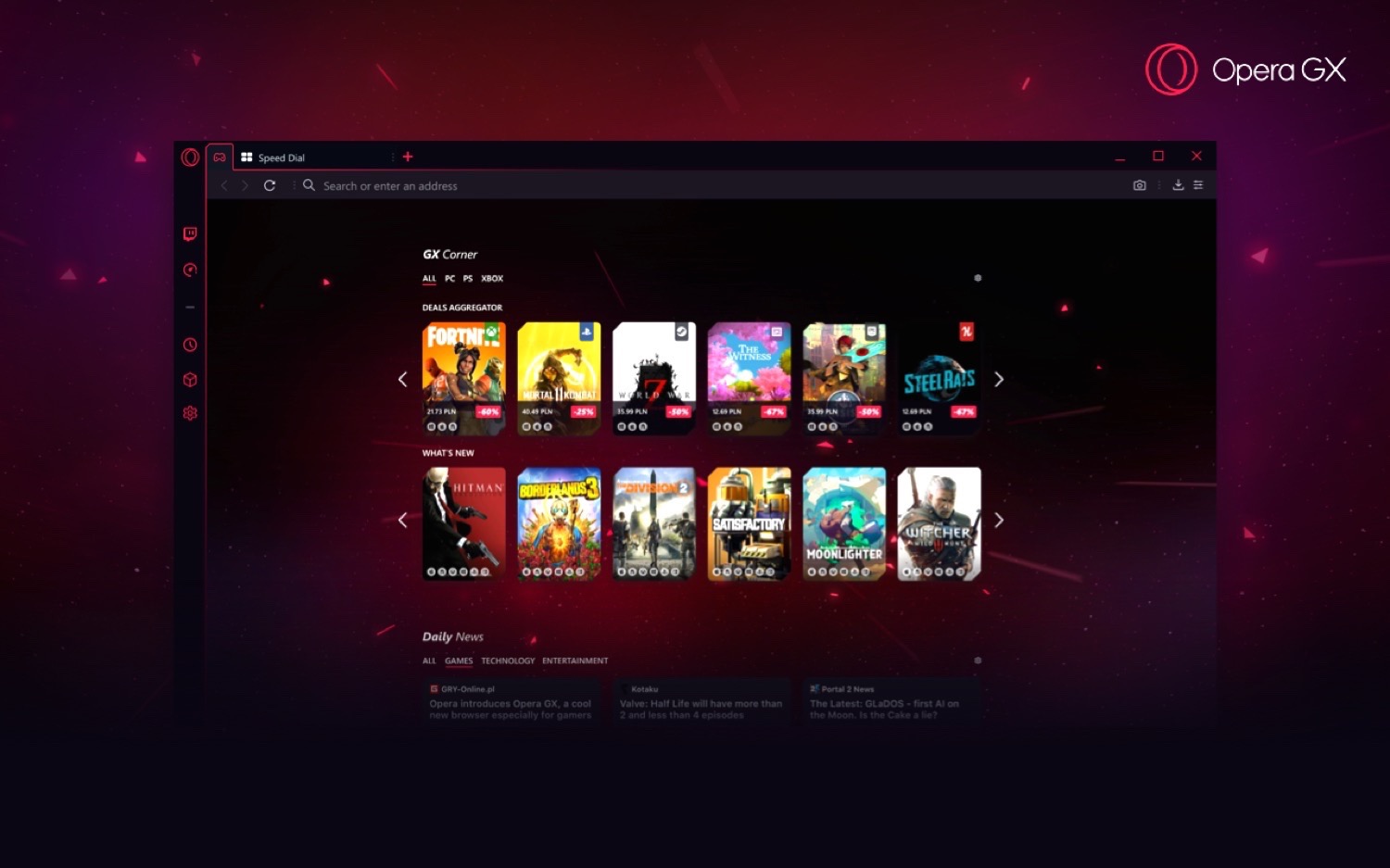

- OPERA GX FOR LINUX HOW TO
- OPERA GX FOR LINUX FULL
- OPERA GX FOR LINUX SOFTWARE
- OPERA GX FOR LINUX PASSWORD
- OPERA GX FOR LINUX WINDOWS 7
Our screenshot shows Github Desktop, but other clients are available.
OPERA GX FOR LINUX WINDOWS 7
Emscripten itself currently has a minimum requirement of Python 3.6 and we cannot guarantee how long they will continue to support Windows 7 usage in their future releases.įor this, you will need a Git client installed and set up to your liking. We recommend v3.10.2 (Jan 22), but note that this is not usable by anyone using Windows 7, so if you're using Windows 7 you would need to use an older release.
OPERA GX FOR LINUX HOW TO
(Mac/Ubuntu users, there are very similar steps you will take, but enough differences in how to get the packages that you should refer to the Emscripten guide we linked above).įirst of all, you would need to install Python from its official page, as this is required by the Emscripten SDK: We will now very briefly demonstrate the steps for a working Windows PC-based install.
OPERA GX FOR LINUX FULL
We will show exactly how to install everything further down this page, but the full documentation and the download links for the Emscripten SDK can be found here - so if you do have any issues following the rest of this guide, please refer to the link above in the first instance. You should therefore take care with the length of your project name, save location, and asset names, etc., so that you stay within Windows' 260 character path limit. However, be aware that when doing GX.games YYC builds using the Windows IDE, it will always automatically disable the use of subst for that build as the Emscripten tools do not like these temporary drives and short file paths. Simply pick the "VM" option as shown in the screenshot near the start of this page and then click to run/debug/create your games.įor this packaging type you will first of all need to install the Emscripten SDK yourself elsewhere on your computer and then point GameMaker at it.Įmscripten is supported on Windows, Mac and Linux, so it doesn't matter which GameMaker IDE version you're using.

There is actually nothing further you need do beyond installing the Opera GX browser and GameMaker - GameMaker already includes all the tools it needs. Note that you may get a Firewall warning the first time you run the target as GameMaker uses a micro web server (see here for more information) to serve the game to the browser and this will require access to your network. Once you have selected this target, you can run your game from the IDE as you would for any other target or for testing and it will open your installed Opera GX browser and run the game. To target Opera GX from the IDE, use the Target Manager, which is located in the top-right of the GameMaker window: Note also that Opera GX is a high-performance, compiled package with in-game functionality and behaviours more similar to Windows, macOS, etc., than it is to the HTML5 target. It's also important that you keep the browser version up-to-date, as GameMaker and the browser may rely on something the other one has just introduced in a new version. You can test your games later on using other browsers, but you will need GX to be installed and this will be the default browser used. Note that before following this guide you will need to have installed the Opera GX browser itself and run it at least once to set it up however you would like. Requires Opera GX (The Browser) Installed On Your Machine > How to Publish a Mobile Game to GX.games

There are two other guides for what comes after you have made your game package: Once located, click Remove.All GameMaker licence types (including free) come with an export platform for Opera GX, which is a free online game-hosting and sharing community where other people from all around the world can easily play your games. This guide covers setting up the Opera GX target and making your game packages.
OPERA GX FOR LINUX SOFTWARE
Alternatively, you could open the DEB or RPM file you installed to open the package manager directly to the appropriate software page. The typical GUI method to remove DEB, RPM, Snap, and Arch packages involve browsing or searching for "opera" using the distribution's default package manager. On Arch Linux and its derivatives: sudo pacman -Rns operaįor those who've installed the Opera Snap package: sudo snap remove opera Removing Opera on Linux Using the GUI On Fedora, CentOS, and RHEL: sudo dnf remove opera-stable On Debian and Ubuntu: sudo apt purge opera-stable On the other hand, if you want to completely remove all traces of Opera from your system, enter the following commands instead:
OPERA GX FOR LINUX PASSWORD
When prompted, enter your password and press Y to continue. If you've installed the Snap package, issue the following command to disable the software temporarily: sudo snap disable opera If prompted, enter your password and press Y to continue. On RHEL, Fedora, and CentOS: sudo rpm -e opera-stable On Debian and Ubuntu: sudo apt remove opera-stable


 0 kommentar(er)
0 kommentar(er)
